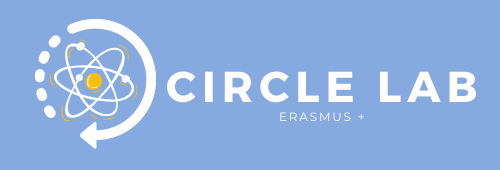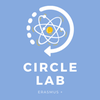Text
The revolutionary learning approach for circular chemistry in Italian secondary schools

Image is from https://youreconomicsuccess.org/workshops-professional-development-and-certification/
07/07/2023 by SC Sviluppo chimica S.p.A. (“SC”)
CIRCLE LAB, a European Erasmus+ KA201 Erasmus+ Strategic Partnership project, aims at creating an online platform which hosts documents, presentations, videos, games, interactive manuals and a training program, specifically designed for secondary school teachers in order to improve the education of their students with the emerging sustainability issues and circular economy concepts.
SC Sviluppo chimica S.p.A. (“SC”), the subsidiary of Federchimica – the Italian Association of Chemical Industries - and Consorzio Scuola Comunità Innovazione (“CSCI”), jointly collaborated to organize the Italian event to disseminate the project’s output to selected participants. The event took place on the 11th of May 2023 in Milan (Federchimica’s premises in Via Giovanni da Procida 11).
The workshop was attended by 31 people (11 professors and 20 students), It started with a plenary session presenting the project and its general aims, the partnership as well as the adopted methodology and the developed educational tools.
Then, the attendees have been split into two rooms for the testing activities. One room was for the teachers, which have been received general information on the training program designed specifically for them, and the instructions on how to use the platform (online environment). Another room was dedicated to the students to test the game.
Within the first room, Paolo Manes (Project Manager, SC) and Andrea Bairati (Consultant, SC) presented the online environment and the learning unit dedicated to Circular Chemistry.
While Veronica Cremonesi (Education manager, Federchimica), Barbara Tosi (Director, CSCI) and Maria Chiara Pizzorno (Consultant, CSCI) presented to the students the game, illustrated the instructions and rules and then tested the game by conducting 2 rounds of debate on Chemical Recycling.
In a Q&A session, the organizers gathered all the feedback on the general methodology as well as on specific content, that emerged during the event.
Most of the suggestions received from the teachers were focused on the availability of editable content, to personalize them before submitting in class.
The game was successfully played by the students, but the organizers underlined the necessity to reconsider some emerging criticality. In particular, the proposed guidelines and instructions (including the “role assignment” of Superheroes and Villains) should be significantly revised and redefined, as to avoid prejudicial positioning implicitly assumed by involved characters (in some cases, the emerging debate resulted misled by the negative stance of the assigned character, proving to be not coherent with the specific scope of the proposed experience).
Organizers suggested therefore to better fine-tune preselected issues and topics, as characters should be carefully picked up to start and develop a constructive debate in class.
Another specific feedback and suggestion has been required to better “design” and present the instance for a combined integration and interplay of chemical and mechanical recycling as needed to realize the successful exploitation of those technologies and consequently lead to effective plastic waste management.
Nevertheless, the level of appreciation of the experience has been quite positive and the final activities could further improve the quality level of the outputs.



